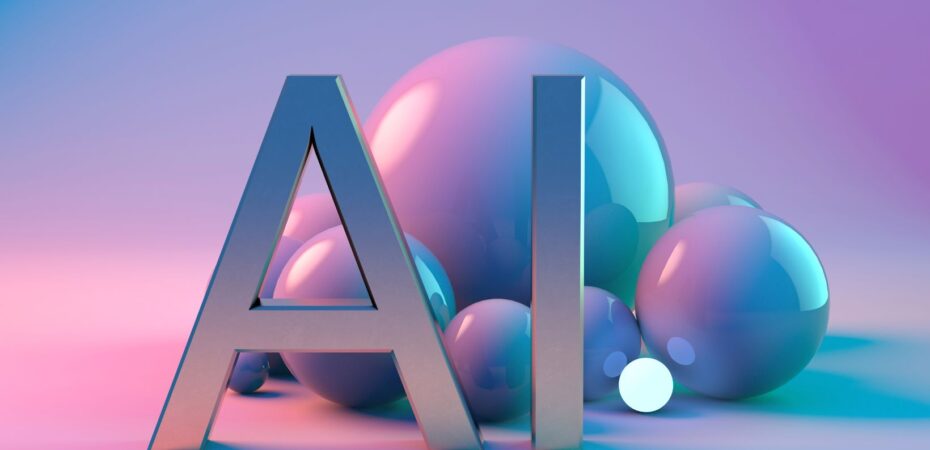Artificial Intelligence (AI) is transforming various sectors, and the creative industries are no exception. Once thought to be the exclusive domain of human talent, creativity is now being enhanced—and sometimes even replaced—by machine learning and AI. From music and art to writing and gaming, AI is reshaping the landscape, allowing for faster production, greater innovation, and entirely new ways of creating content. But what does this mean for artists, writers, and other creatives? Let’s explore how AI is impacting creative fields and what the future holds.
AI in Visual Arts: Machines as Digital Painters
In the world of visual arts, AI is making waves with its ability to generate original artwork. Programs like DeepArt and Google’s DeepDream offer platforms where machines can “learn” from existing art styles and produce something new. More advanced models, like OpenAI’s DALL·E, allow users to input text prompts and generate entirely original images. These AI tools democratize art creation by giving anyone the ability to produce complex digital images, even without artistic skills.
For professional artists, AI can take on repetitive or time-consuming tasks, such as editing or generating concept designs. This allows human artists to focus on refining their ideas rather than getting bogged down in technical work. The blend of human creativity and machine precision can lead to fascinating new forms of expression, though some worry that as AI-generated art becomes more popular, it could devalue human-made art.
Music: AI-Composed Melodies and Lyrics
Music is another field where AI is making a significant impact. With platforms like Amper Music and Jukedeck, users can create royalty-free music by simply adjusting parameters, and the AI does the rest. This technology is particularly valuable for content creators who need background music for videos, advertisements, or even gaming.

AI can generate melodies, harmonize tracks, and even compose entire songs. While this speeds up production, it also raises questions about the future of human musicians. Will AI-generated music replace human creativity, or will it act as a tool to enhance it? Right now, the consensus seems to be that AI can be a helpful assistant, but it will likely never fully replace the emotional depth and nuance that human musicians bring to their work.
AI in Writing: From Blogs to Screenplays
The impact of AI on writing is perhaps one of the most exciting developments in creative industries. Tools like GPT-4 are now capable of generating coherent, contextually relevant text across various topics, from short-form blog posts to long-form novels. Writers can use AI as a tool to brainstorm, overcome writer’s block, or even generate a first draft, which they can then refine.
AI-generated content is proving invaluable in industries like marketing, journalism, and entertainment. AI tools can assist in writing film scripts, helping with dialogue generation or story outlines. This speeds up the process for screenwriters, allowing them to experiment with more ideas in less time.
However, there are ethical concerns. Can we consider AI-generated writing as truly “creative”? And who owns the rights to work produced by machines? As these tools become more sophisticated, the debate over creativity and ownership will only intensify.
AI in Gaming: Enhancing Player Experiences
AI’s role in the gaming industry is profound, influencing everything from game development to player experiences. AI can generate dynamic environments, develop non-playable characters (NPCs) that interact more naturally with players, and even adapt games in real time based on how players behave. This allows for more personalized and immersive gaming experiences.
AI is also making an impact in the online gambling space. With the rise of blockchain technology, AI is being integrated into crypto casino sites to improve fairness, transparency, and player engagement. By ensuring that game outcomes are genuinely random and secure, AI helps build trust in online gaming platforms, offering a more enjoyable and reliable experience for players. Blockchain further ensures that transactions are safe, combining the best of both worlds for the gambling industry.
Ethical and Creative Concerns
While AI brings many advantages to creative industries, it also raises significant ethical and creative concerns. One major issue is the question of originality. If AI generates new content based on existing works, can it truly be considered original? Additionally, who owns the rights to AI-generated creations: the user who provided the input or the developers who created the AI?
There’s also the issue of job displacement.

As AI tools become more capable, some worry that certain creative jobs—like graphic designers, writers, and musicians—could be at risk. Freelancers and emerging artists may find it harder to compete with AI-powered platforms that can produce content faster and often at a lower cost.
However, it’s important to remember that AI isn’t a replacement for human creativity—it’s a tool. Those who learn to work alongside AI and use it to augment their work will likely thrive in this evolving landscape. The key is balance: ensuring that technology enhances creativity without diminishing the unique human element that makes art and storytelling so powerful.
Looking Ahead: The Future of AI in Creative Fields
As AI continues to advance, its role in creative industries will only grow. From assisting in the creation of music, art, and writing to enhancing gaming experiences, AI is becoming an indispensable tool for many creatives. However, the future success of AI in these industries will depend on how well we can navigate the ethical challenges and strike a balance between innovation and human touch.
For now, AI should be seen as a powerful ally, not a threat. It can automate mundane tasks, push the boundaries of what’s possible, and allow creatives to focus on what they do best: being creative. The future of creativity is bright as long as we remember to use AI responsibly and with respect for the human element that makes art, music, and stories so captivating.


 By
By 




